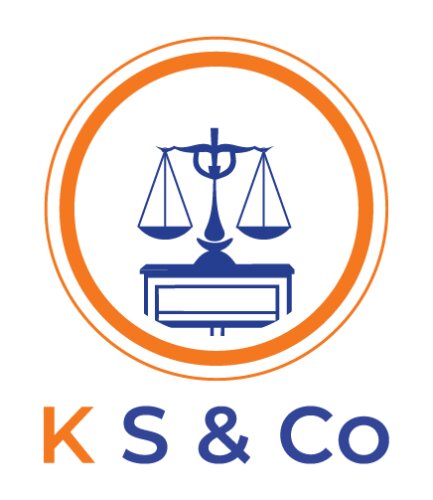Best E-commerce & Internet Law Lawyers in India
Share your needs with us, get contacted by law firms.
Free. Takes 2 min.
Or refine your search by selecting a city:
List of the best lawyers in India
About E-commerce & Internet Law in India
E-commerce & Internet Law in India encompasses a wide range of legal issues that arise from online business transactions and digital interactions. With the exponential growth of internet usage and online platforms, the Indian legal landscape has evolved to address these changes. The Information Technology Act, 2000, serves as the foundational framework governing electronic commerce, digital contracts, data protection, and cyber crimes. Additionally, several regulations, such as the Consumer Protection (E-commerce) Rules, Trademark Act, and Copyright Act, play crucial roles in regulating digital interactions and protecting intellectual property rights online.
Why You May Need a Lawyer
There are numerous scenarios in which individuals or businesses might seek legal assistance in E-commerce & Internet Law:
- Data Protection Compliance: Ensuring adherence to data protection laws and safeguarding consumer information.
- Intellectual Property Protection: Handling copyright, trademark, and patent issues related to digital content and branding.
- Cybersecurity Breaches: Navigating incidents of hacking, fraud, or unauthorized access to online platforms.
- Consumer Disputes: Addressing complaints and issues arising from online transactions and services.
- Digital Contracting: Drafting and reviewing electronic contracts for clarity and legal enforceability.
- Compliance with E-commerce Regulations: Ensuring online businesses comply with the Consumer Protection (E-commerce) Rules, 2020.
- Website Terms and Policies: Creating clear and compliant terms of service and privacy policies for websites and online platforms.
Local Laws Overview
Several key laws are particularly relevant to E-commerce & Internet Law in India:
- Information Technology Act, 2000: Regulates electronic commerce, digital contracts, data protection, and cybercrime.
- Consumer Protection Act, 2019: Includes provisions that protect consumers in online transactions and services.
- Consumer Protection (E-commerce) Rules, 2020: Sets guidelines for fair trade practices on e-commerce platforms.
- Intellectual Property Laws: The Copyright Act and the Trademark Act protect digital content and branding online.
- Payment and Settlement Systems Act, 2007: Governs electronic payments and transactions in India.
Frequently Asked Questions
1. What constitutes an e-commerce company in India?
An e-commerce company in India is any business that facilitates the buying and selling of goods or services online over the internet.
2. What are the legal requirements for setting up an e-commerce business in India?
Legal requirements include registering the business, obtaining GST registration, ensuring compliance with the Information Technology Act, 2000, and adhering to the Consumer Protection (E-Commerce) Rules, 2020.
3. How can I protect my online business from cyber threats?
Implement robust cybersecurity measures, maintain compliant data protection policies, and regularly update security protocols to safeguard against cyber threats.
4. Are e-contracts legally enforceable in India?
Yes, under the Information Technology Act, 2000, electronic contracts are legally valid and enforceable in India.
5. How does the IT Act address online fraud?
The IT Act provides a legal framework to address various forms of online fraud, including identity theft, cyber deception, and financial scams.
6. What are the rules for advertising online in India?
The Advertising Standards Council of India (ASCI) provides guidelines for online and digital advertisements to prevent misleading or deceptive advertising practices.
7. How do the Consumer Protection (E-commerce) Rules affect online sellers?
The rules mandate transparency, fair practices, and dispute redressal mechanisms for protecting consumer rights in e-commerce transactions.
8. What are the penalties for data breaches under Indian law?
Penalties for data breaches can include fines, imprisonment, and compensation for affected parties as per the IT Act, 2000, and related regulations.
9. Can customers file complaints against e-commerce companies?
Yes, consumers can file complaints under the Consumer Protection Act, 2019, for issues related to online transactions with e-commerce companies.
10. How can intellectual property rights be enforced online?
Intellectual property rights can be enforced through the Copyright Act and the Trademark Act by taking legal actions such as injunctions and claims for damages against infringements.
Additional Resources
For further assistance, consider these resources:
- Ministry of Electronics and Information Technology (MeitY): Governs digital laws and policies in India.
- Consumer Affairs Department: Provides guidance related to consumer protection in e-commerce.
- Cyber Appellate Tribunal: Handles appeals related to cyber law grievances.
- National Internet Exchange of India (NIXI): Supports internet infrastructure and governance in India.
Next Steps
If you require legal assistance in E-commerce & Internet Law, consider these steps:
- Consult a Lawyer: Seek a lawyer with experience in E-commerce & Internet Law to discuss your specific needs and concerns.
- Conduct an Audit: Perform a legal and compliance audit of your online business with professional help.
- Stay Informed: Keep abreast of new legislation and amendments to existing laws relevant to digital operations.
- Join Professional Networks: Join associations or forums related to e-commerce and internet law for continuous learning and support.
Lawzana helps you find the best lawyers and law firms in India through a curated and pre-screened list of qualified legal professionals. Our platform offers rankings and detailed profiles of attorneys and law firms, allowing you to compare based on practice areas, including E-commerce & Internet Law, experience, and client feedback.
Each profile includes a description of the firm's areas of practice, client reviews, team members and partners, year of establishment, spoken languages, office locations, contact information, social media presence, and any published articles or resources. Most firms on our platform speak English and are experienced in both local and international legal matters.
Get a quote from top-rated law firms in India — quickly, securely, and without unnecessary hassle.
Disclaimer:
The information provided on this page is for general informational purposes only and does not constitute legal advice. While we strive to ensure the accuracy and relevance of the content, legal information may change over time, and interpretations of the law can vary. You should always consult with a qualified legal professional for advice specific to your situation.
We disclaim all liability for actions taken or not taken based on the content of this page. If you believe any information is incorrect or outdated, please contact us, and we will review and update it where appropriate.
Browse e-commerce & internet law law firms by city in India
Refine your search by selecting a city.
















